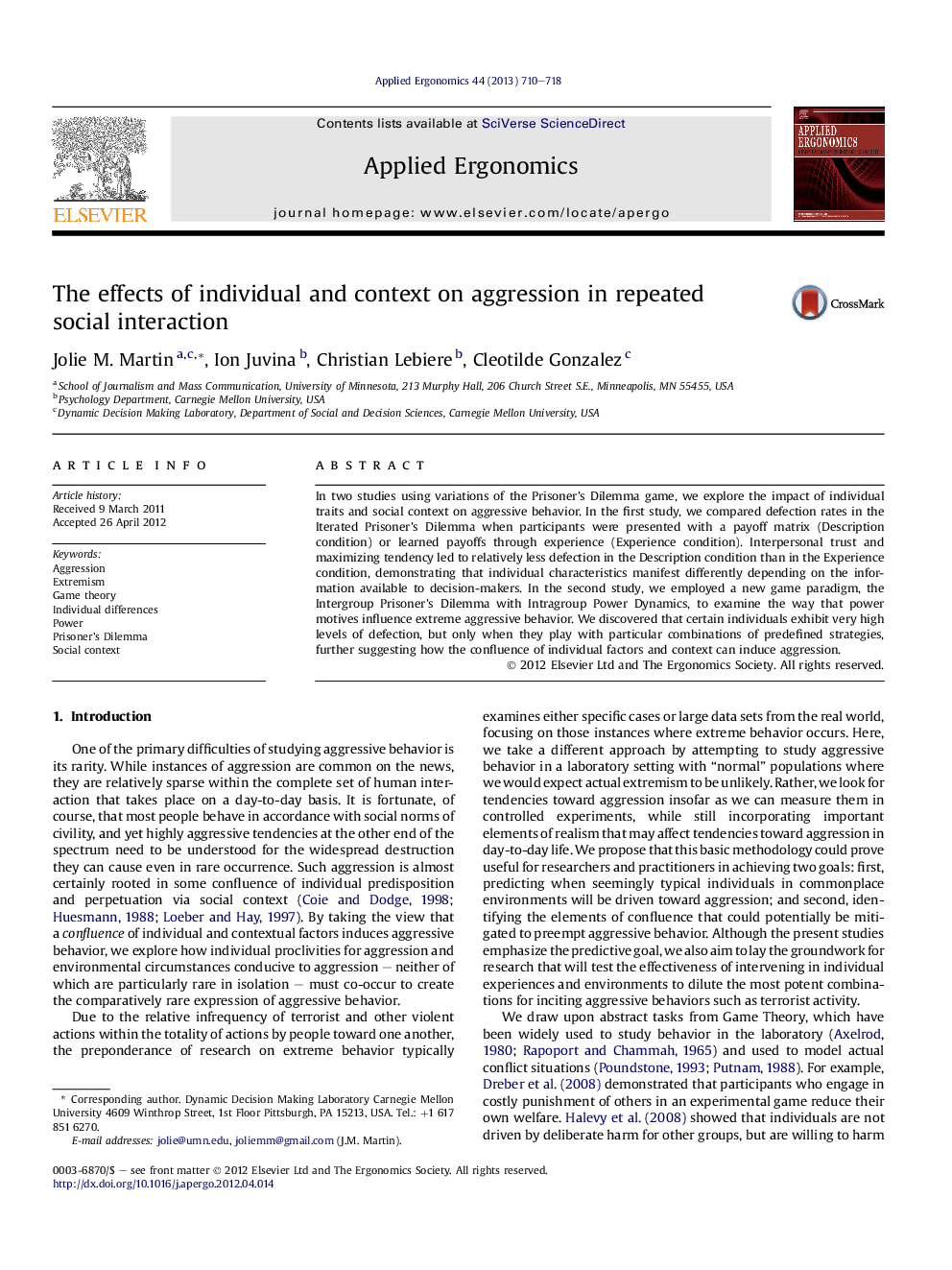| Article ID | Journal | Published Year | Pages | File Type |
|---|---|---|---|---|
| 549329 | Applied Ergonomics | 2013 | 9 Pages |
In two studies using variations of the Prisoner's Dilemma game, we explore the impact of individual traits and social context on aggressive behavior. In the first study, we compared defection rates in the Iterated Prisoner's Dilemma when participants were presented with a payoff matrix (Description condition) or learned payoffs through experience (Experience condition). Interpersonal trust and maximizing tendency led to relatively less defection in the Description condition than in the Experience condition, demonstrating that individual characteristics manifest differently depending on the information available to decision-makers. In the second study, we employed a new game paradigm, the Intergroup Prisoner's Dilemma with Intragroup Power Dynamics, to examine the way that power motives influence extreme aggressive behavior. We discovered that certain individuals exhibit very high levels of defection, but only when they play with particular combinations of predefined strategies, further suggesting how the confluence of individual factors and context can induce aggression.
